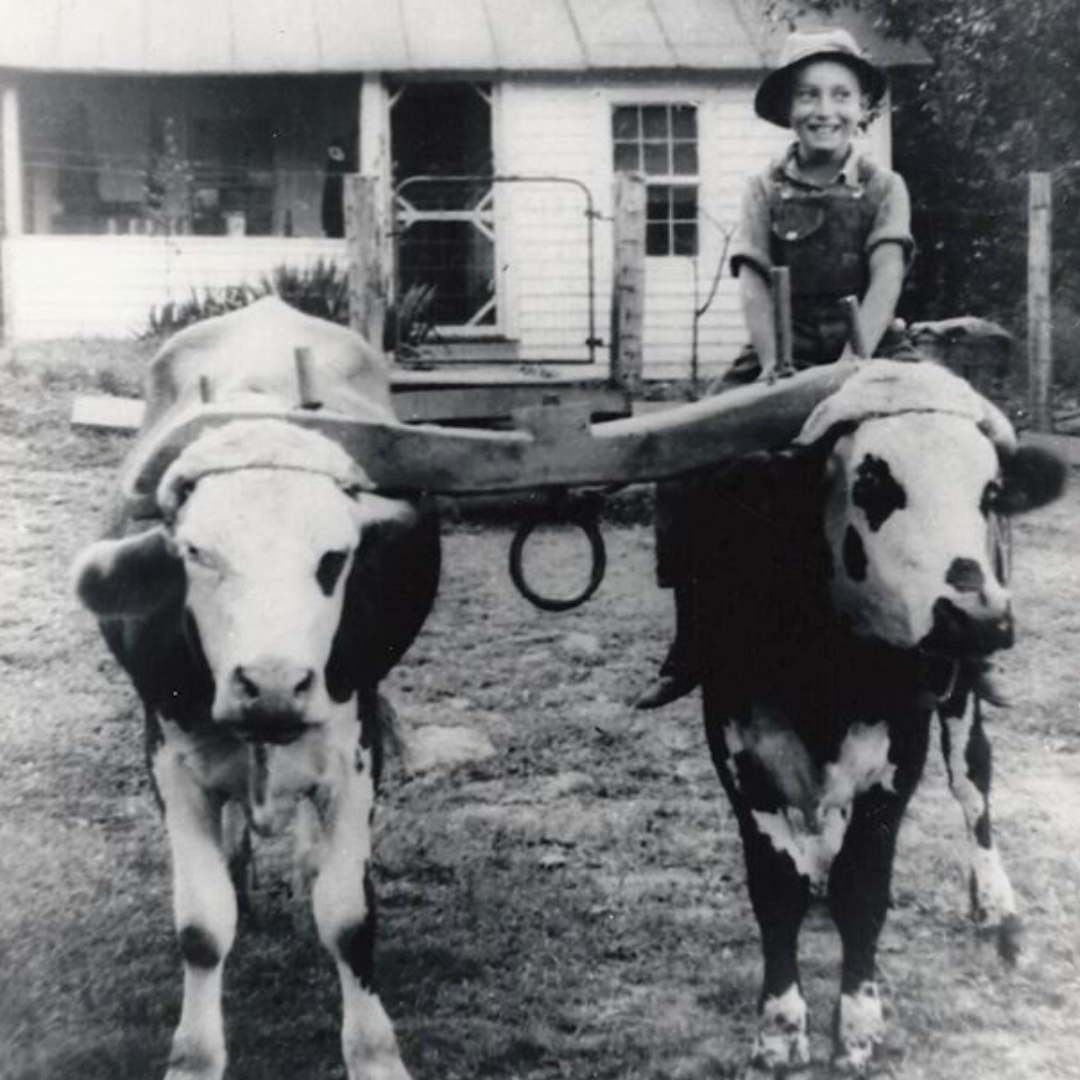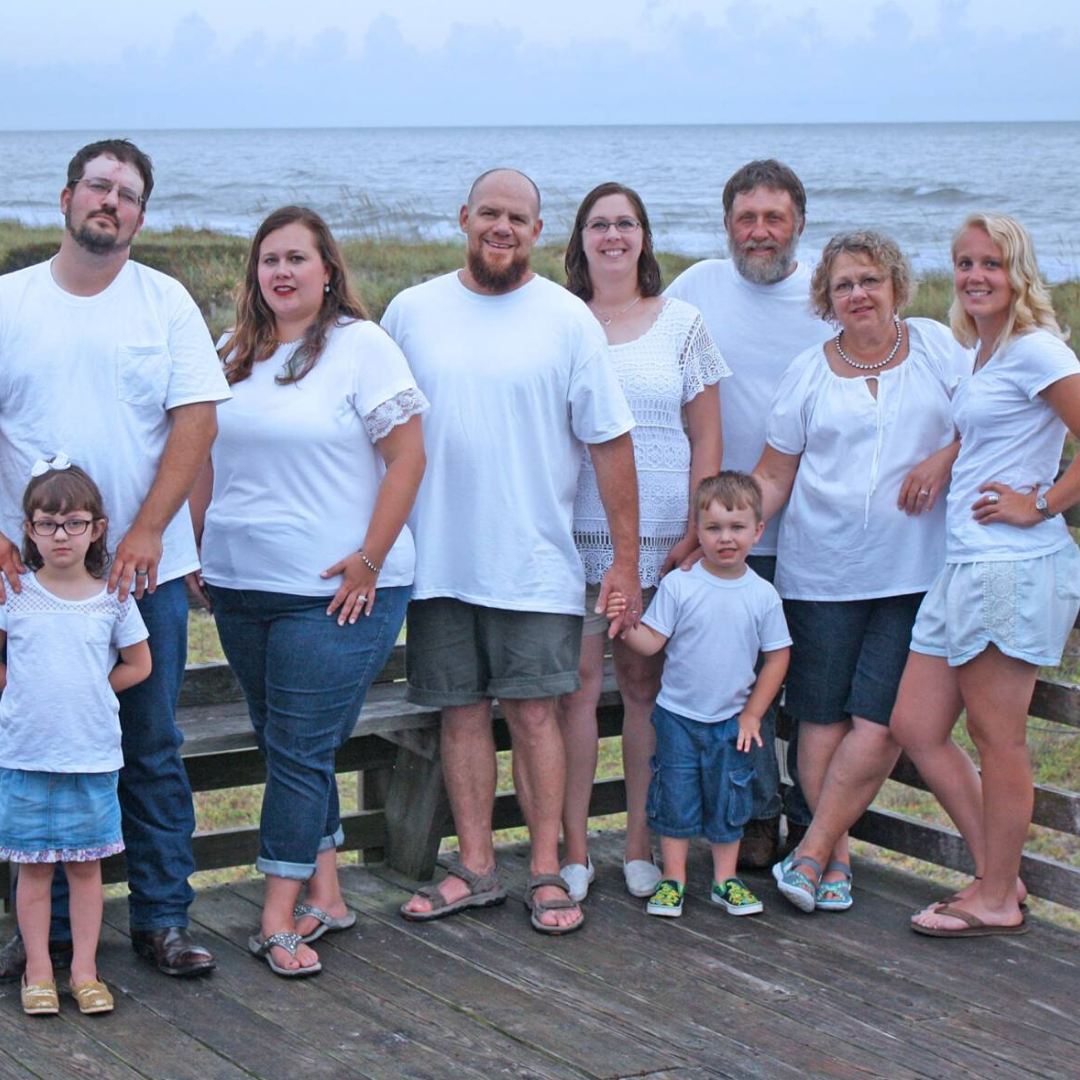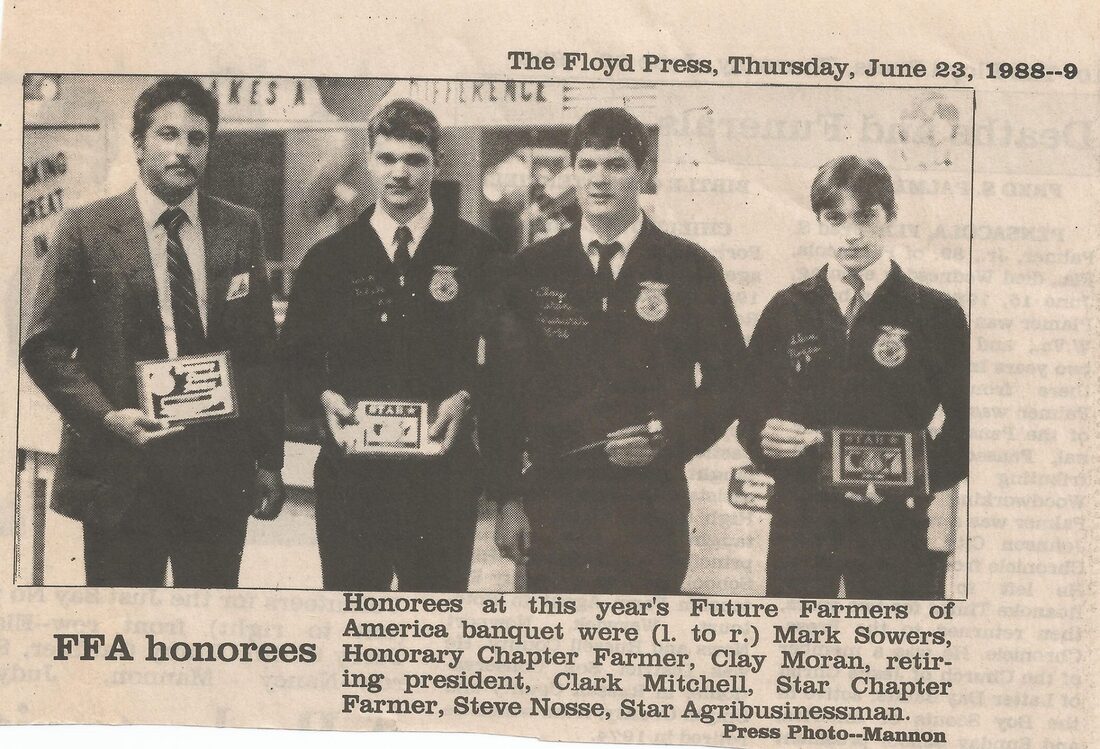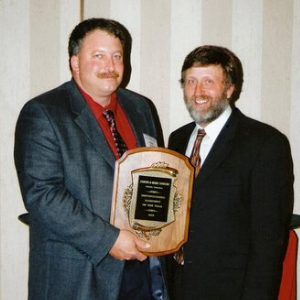Huckleberry Farm History
Huckleberry Beef began as a Grade A Dairy farm that Noah F. Sowers (Mark and Curtis Sowers father) started in 1958 in Floyd, VA. Being a family owned operation, it was named Huckleberry Beef and became a partnering enterprise in the mid 1970's and continued to grow. With farming being part of the family for over 100 years the Sowers family have built a well-known family operation, recognized as one of Virginia's Century Farms, included in the spotlight segment of the 2013 Select Sire Beef Directory and also named the 2009 Virginia Dairymen of the year. Even though the family farm has raised other livestock and crops over the years, their ongoing focus is on their cattle both beef and dairy.
Huckleberry Beef is currently run by the Sowers Family, Mark and Curtis which have worked on the farm since they were little. Along with their wives and children. Curtis and his wife Loyce and their three kids Chase Lowe, Ciera Boyd, and Shasta Sowers, which all help out on the farm part-time. Curtis and Loyce also have two grandchildren Anna Beth and Henry Boyd. Loyce also works for a local family medical doctor as a medical records keeper. Mark and Teresa don't have any children but they do have their four legged children, their dog Max and several cats too numerous to name. Mark works on the farm and Teresa works at Virginia Tech as an accountant.
The Huckleberry beef operation consist of 650 acres owned property and about 650 acres of rented property with about half of the total acreage used for cattle and forage production. The rest is in timber. Crops grown on the farm include 225 acres in corn, 150 acres in alfalfa, and about 350 acres is used for hay and pasture land. "Mark said, the only thing we purchase is small hay bales, straw, grain, and supplements. The rest comes straight from their farm!"
The cattle buying began in the mid 1970's through purchasing black and black baldy cattle to complement the dairy operation. In 1981, the legal partnership was formed and the Huckleberry Beef business began to grow. With the help of family, friends, and neighbors each year more cattle were added to their dairy herd. In 1980s' the purchase of beef breeding cattle began. The herd started through purchasing a few cows and heifers from some area herds. During this time they bought their bulls from Beef Cattle Improvement Association sales and other breeders in the state including Echo Ridge and Wehrmann Angus. Utilizing these genetics and retaining heifers allowed the beef cow herd to grow. Simmental and Angus cross cows were eventually replaced primarily with Angus influence. The Sowers also transitioned from breeding cows through natural service to artificially inseminating their cattle and in the mid 1990's they began breeding all first service heifers artificially to more quickly improve the genetic foundation of their herd. The Sowers now partner with their neighbor and friend, Terry Slusher, to buy cleanup bulls. "Mark Said, Terry mainly has a fall beef cattle herd, where we have mainly a spring herd. That way we double our buying power to get the better bulls."
Randall M. Nester started as the Huckleberry Beef herdsman in 2001 with a goal to continue to grow their beef cattle program and seek new marketing opportunities. In 2002, Randall worked with Norm Vincel, beef coordinator for Select Sire Power, to selectively mate the cows based on pedigree and frame size. "These two events have really helped our herd become more uniform and competitive in the beef cattle industry today", said Mark. Each year they retain prospect replacement heifer calves and evaluate them in a rigid selection protocol that includes pelvic measurement, reproductive tract scoring, and weight. These aid to determine, physiologically speaking, the heifers will likely have minimal calving difficulties, high fertility, and vigor. The heifers are then artificially bred to calving ease sires to assure an easy first calf for the young heifers and reduce dystocia. All the cattle are pregnancy checked in the fall to validate the correct sire and calving date information. The first calf heifers are then pastured, fed and calved in a separate pasture from the older cows to assure extra attention to the growth and health of both new cow and calf. "Mark said, our farm has worked closely with Food Animal Veterinarians from VA-MD Regional College of Veterinary Medicine for over 30 years. Working with the faculty, staff, and students at the vet school is very rewarding. It has really kept us on the cutting edge of health issues for our herd." Currently Huckleberry Beef operates with around 200 brood beef cows. The cattle are split into two different calving seasons about 160 head are bred to calve in the spring and about 40 head around bred to calve in the fall. The Huckleberry herd remains predominantly Angus based, but also utilizes Simmental and Hereford crossbreeding to maximize heterosis. Since the Sowers and Huckleberry Staff are around their cattle so much when they are breeding and feeding them, most of the cows are very tame and disposition is not an issue. Low excitability also helps lessen stress of the cattle when rounding up, moving, working, or selling.
Recently Huckleberry Beef decided to start having an annual production sale. Mark said, "One of the reasons we started having an annual cow sale was because we wanted to take full advantage of the AI breeding program that they had implemented. Sure we had a good set of cows but we knew that the heifers from these breeding's would be far superior to what we had. After all, the bulls we were using were some of the best in the USA if not the world." He continued saying, "When we started selling the extra cows we had, everyone said, I wish I would have got to pick out of your sale cows first." So the next year they offered them for sale at auction. Each year their herd gets better and better and in turn the cows they offer get better and better. "Everyone knows that you can make more genetic improvements with purchasing a good bull, but they are only half of the equation. If you don't have good females then you can only improve so much." "Most of the time if you want to expand or replace females in your herd you only have open and bred heifers to choose from. Sure they are young and bred, but do you know what their mothering abilities are? Our sale cows take that risk out of the equation, because all of them have had at least one calf before selling and now know the routine", said Mark. Huckleberry Beef currently holds a bred cow sale each year the first Saturday in December. "We don't have a fancy sale barn or ring yet, but maybe someday. Holding the sale in December would make a sale barn better for everyone, because we have had several sale days that it has snowed or been real cold, but the cattle still seem to sale well anyways", said Mark. Right now they have a temporary pens built near and old store building we own and hold the sale outside. They try to pen like animals together and then sale them 1 or 2 at a time. They offer a wide variety of cows from 3 to 9 years old. The cows are bred to either AI bull that will calve in February or March or to a bull bred cow that will calve later in the spring.
On the dairy side of Huckleberry Beef, they maintain roughly 660 head. They have 235 milking cows in the lactation. 200 are registered Holsteins, 16 are Brown Swiss and 17 are Cross Breeds. They also have 282 dairy heifers the breeds on those 232 Holsteins, 21 Brown Swiss and 29 Cross Breeds. They keep between 100 to 150 Holsteins steers for marketing and selling in Wytheville at the state graded Holstein Feeder Sales in the spring and fall. Mark says, "We try to market them when they reach a weight range of 500 - 900 pounds depending on how many we have and what the feed availability is at the time of the sale." Huckleberry Beef's dairy has a Rolling Herd Average of 20,363 lbs milk, 810 lbs fat, 617 lbs protein and 230,000 SCC. They just completed their new 142' X 240' Pack barn with hope of increasing those figures in the future, with the help of added comfort and bunk space for milking cows.
Huckleberry Beef is a very successful family owned operation on both beef and dairy cattle side, with a lot of great genetic breeding. Their young stock program makes a difference, with quality stock you can count on!
Huckleberry Beef is a very successful family owned operation on both beef and dairy cattle side, with a lot of great genetic breeding. Their young stock program makes a difference, with quality stock you can count on!






